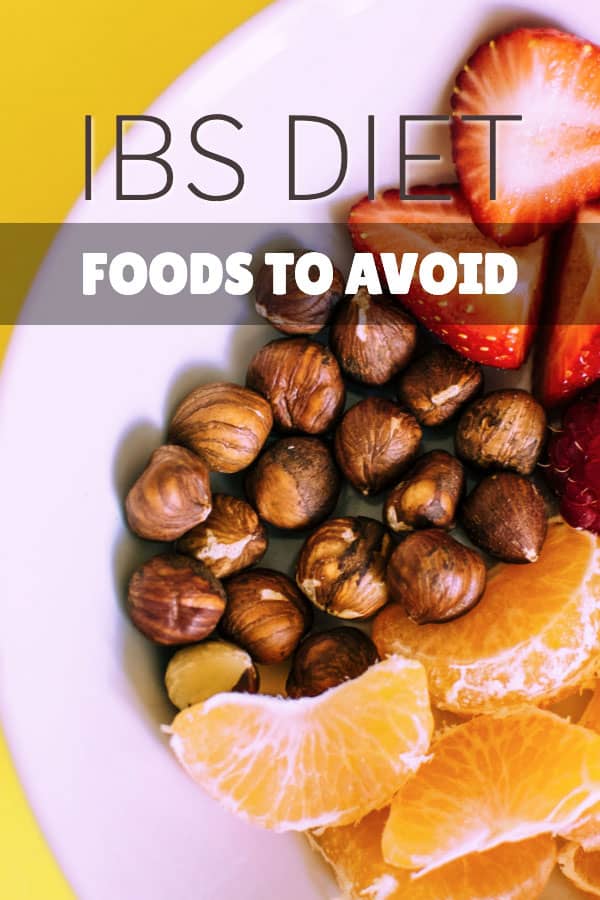Irritable Bowel Syndrome (IBS) is a gastrointestinal disorder affecting up to 20% of the population of Ireland, half of which never see a doctor.
IBS should not be confused with Inflammatory Bowel Disease although the two share common symptoms.
Inflammatory Bowel Disease (IBD) manifests as ulcers and inflammation of the bowel.
IBS is a less serious condition but one that you should address, nonetheless. Untreated IBS can develop into IBD. In the UK, researchers found that patients diagnosed with IBD are more likely to have had symptoms or diagnosis of IBS in the past.
In Ireland, the disorder affects more women than men and generally appears in the years 20 to 30s.
Across the world, the conditions are increasing every year. In parts of Asia, western foods cause serious health issues for cultures unadapted to the ingredients common in the west.
The point is, IBS is not something to ignore. Ask anyone that suffers from the condition and they will tell you it’s hard to ignore. Let’s look at how we can naturally heal the bad effects of sensitivities to certain foods.
What causes IBS?
The causes for the condition are not fully known but food appears to be one of the main culprits. The food we eat today is far removed from the food our ancestors survived on. Excess wheat and sugar, additives and preservatives, and pesticides and other chemicals in our food cause havoc in our guts.
The microbiome, our collection of healthy bacteria that aids digestion among other things, cannot thrive with the modern dietary lack of nutrients and over-emphasis on processed foods.
And sufferers can expect a lower quality of life. IBS causes diarrhoea, gas, and other uncomfortable symptoms which affect the lives of millions of people worldwide every day.
In my experience, it seems most cases of IBS are usually triggered by a food intolerance. Long term exposure to foods you are sensitive to weakens the digestive system and causes inflammation to the gut, damaging the gut wall which can lead to a leaky gut. In my opinion, IBS is not a condition, it is a symptom. I have helped many IBS sufferers get the root cause of their symptoms. By focusing on healing the gut while removing food sensitivities we have achieved great transformations.
Which foods are triggers for IBS?
The typical recommendations by doctors and nutritionists to focus on high fibre foods is not always ideal. IBS sufferers often have trouble with fibrous foods, especially the insoluble type. Once you have an irritable bowel there are certain food groups that can exacerbate the situation.
The foods most likely to cause problems are:
- Insoluble fibre
- Coffee, Tea, & Alcohol
- Nuts
- High-Fructose foods (fruit and foods with added fructose)
- Dairy
- Fried and fatty foods
- Chocolate
- Raw Cruciferous vegetables like broccoli
How you eat is also important. We all know people that can stuff themselves on pizza and burgers, followed by a couple of Coca-Colas or a beer, and feel no ill effects in the short-term (long-term they are killing themselves but that’s another story). But consuming large, fatty meals with lots of carbonated drinks creates the exact environment for gas and bloating in some people.
Soluble and insoluble fibre
There are two types of fibre and both are beneficial to our intestinal health. The first, soluble fibre, is the type in fruits and vegetables and is easily fermented in the gut.
The other type, insoluble fibre, doesn’t ferment well and doesn’t digest as well in the gastrointestinal tract. Under normal circumstances, we need this insoluble fibre to pass through our systems for optimal health. But this fibre type is a common cause of intestinal distress in IBS sufferers.
Foods high in Insoluble Fibre include
- Lentils
- Pinto beans
- Beetroot
- Chickpeas
- Parsnips
- White beans
- Black beans
- Pears
- Strawberries
- Cabbage
- White bread
- Broad beans
- All Bran
- Raisin bran
- Shredded Wheat
- Barley
- Wheat germ
- Wholegrain bread
- Millet
- Whole wheat bread
- Popcorn
- Flaxseeds
- Oatmeal
- Rye bread
- Rolled oats
- Oat flakes
- Bitter gourd
- Wheat bran
- Whole wheat
- Apples
- Raspberries
- Figs
- Kiwi large
- Mango
- Spinach
- Turnip
- Potato with skin
- Sweet potatoes
- Lima beans
- Soybeans
FODMAPs
FODMAPs, a class of foods that fall into the fermentable carbohydrate category, are notoriously problematic for people with IBS symptoms.
A low Fodmap diet is commonly recommended for IBS sufferers. This tends to give good relief for most people, but I find it isn’t very sustainable for people to keep to as it is so restrictive. I find I get better results by using a food intolerance test and removing the foods that have been flagged for that individual. My focus is then on strengthening the digestion so that Fodmap foods can be tolerated again.
Some people are not phased by the Fodmap diet and feel great following this diet. It is worth trying if you feel confident to experiment yourself and see what works for you.
By following a proper elimination diet protocol, you can determine which foods cause problems and which don’t. For most people, one or two foods will trigger IBS symptoms and cause all kinds of issues from acne to irritation. Removing these key foods can reduce most of the symptoms and allow IBS patients to improve their quality of life.
The list of FODMAP foods include:
- Onion
- Celery
- Apples
- Avocado
- Beetroot
- Garlic
- Beans
- Prunes
- Raisins
- Wheat
- Agave
- Rye
- Peas
- Artichoke
- Asparagus
The list goes on. And many agencies and boards that give advice on these things don’t agree on what would be on the list of FODMAP foods. An unsensational view of the FODMAP is taken by the aboutibs.org website, part of the International Foundation for Gastrointestinal Disorders, a public charity in the US). Their recommendations are as follows:
- Treat the low FODMAP diet as a process.
- Know that symptoms can be eliminated and controlled. It’s not required to stay on the diet forever.
- Low FODMAPs does not mean No FODMAPs.
Studies show that low-FODMAP diets can be effective in relieving IBS symptoms.
More research is needed but this form of diet treatment is worth exploring for people that have not seen any results from standard IBS diets.
FODMAP diets and children
The accepted view is that IBS is an adult affliction, but the evidence suggests that the incidence of IBS in children is increasing worldwide. The fact is children cannot absorb fructose as well as adults. The unabsorbed sugars in the gut cause gastrointestinal distress in young children (especially those under 10).
If your child is showing signs of having IBS, try removing simple sugars and fruits from the diet and monitor the response.
What foods can help?
Certain foods and routines can help with IBS even without changes to diet. These include:
- Drinking more water. Water helps move food through the GI tract
- Drink herbal teas such as peppermint and after meals tea.
- Eat more soluble fibre in the form of vegetables.
- Drink lactose-free milk.
- Eat less fatty meats like Chicken breast or lean beef. And try to bake, broil or boil the meat rather than fry.
- Bone Broth Soup can help, this nutrient-dense soup heals inflammation in the gut and heals the gut lining.
The best way to respond to IBS is to implement an elimination diet under the supervision of a trained nutritionist or doctor. Food intolerance tests are another useful tool used to find the root causes of IBS. Intolerances to food ingredients and even entire categories of food (cereals, for example) are on the rise worldwide. Nutrition has changed drastically over the last 10,000 years and we’re paying the price. But that doesn’t mean we must accept it. We now have the technology and the skills to find solutions. Make the most of them!


Rachael Jordan is the founder of Bia Beo.
She is a qualified Nutritional Therapist and Herbalist. Rachael helps people take control of their health by recommending appropriate treatment plans based on nutrition, herbal medicine and lifestyle changes.



